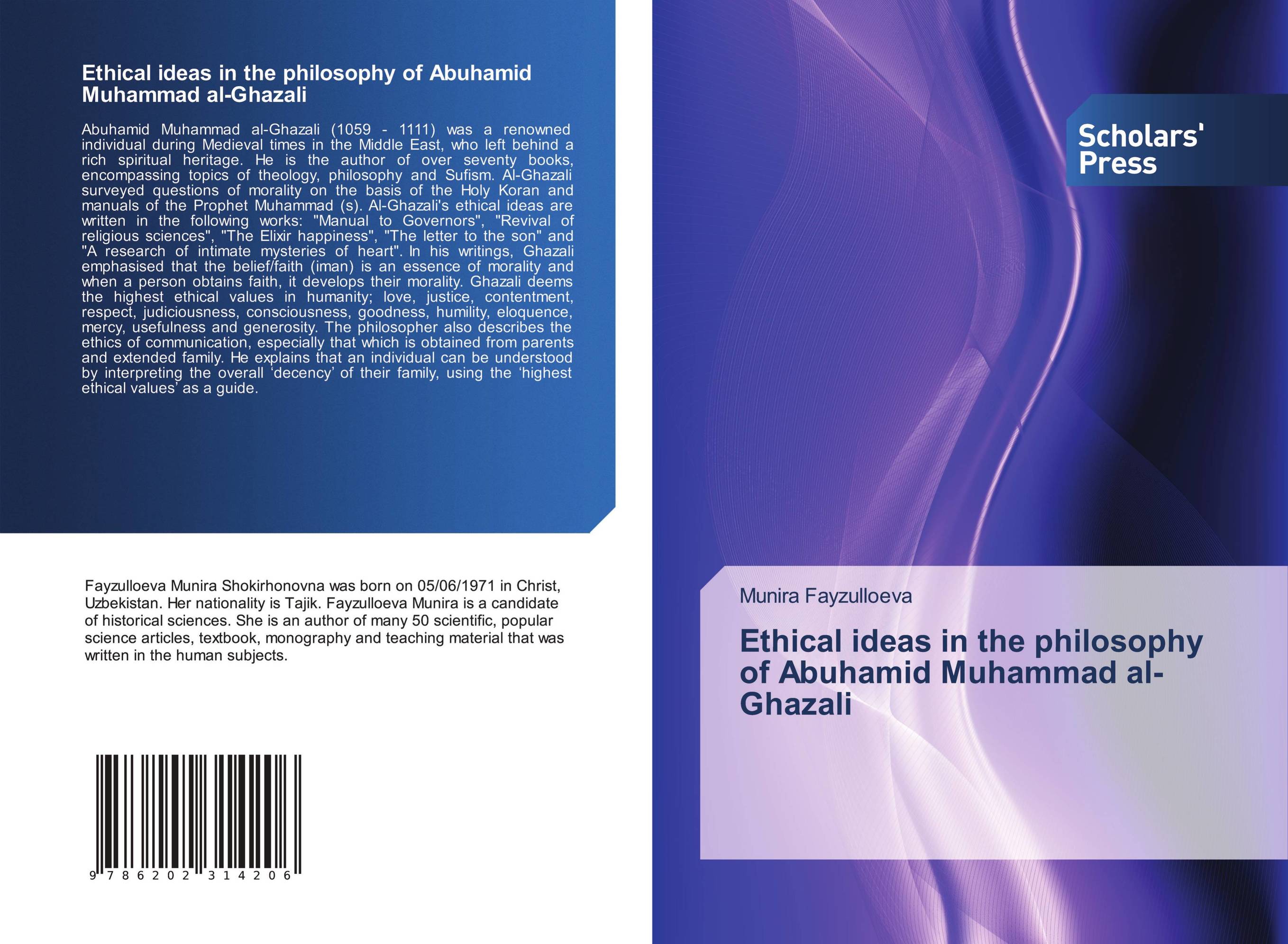| Поиск по каталогу |
|
(строгое соответствие)
|
- Профессиональная
- Научно-популярная
- Художественная
- Публицистика
- Детская
- Искусство
- Хобби, семья, дом
- Спорт
- Путеводители
- Блокноты, тетради, открытки
Ethical ideas in the philosophy of Abuhamid Muhammad al-Ghazali.

В наличии
| Местонахождение: Алматы | Состояние экземпляра: новый |

Бумажная
версия
версия
Автор: Munira Fayzulloeva
ISBN: 9786202314206
Год издания: 2018
Формат книги: 60×90/16 (145×215 мм)
Количество страниц: 60
Издательство: Scholars' Press
Цена: 26112 тг
Положить в корзину
| Способы доставки в город Алматы * комплектация (срок до отгрузки) не более 2 рабочих дней |
| Самовывоз из города Алматы (пункты самовывоза партнёра CDEK) |
| Курьерская доставка CDEK из города Москва |
| Доставка Почтой России из города Москва |
Аннотация: Abuhamid Muhammad al-Ghazali (1059 - 1111) was a renowned individual during Medieval times in the Middle East, who left behind a rich spiritual heritage. He is the author of over seventy books, encompassing topics of theology, philosophy and Sufism. Al-Ghazali surveyed questions of morality on the basis of the Holy Koran and manuals of the Prophet Muhammad (s). Al-Ghazali's ethical ideas are written in the following works: "Manual to Governors", "Revival of religious sciences", "The Elixir happiness", "The letter to the son" and "A research of intimate mysteries of heart". In his writings, Ghazali emphasised that the belief/faith (iman) is an essence of morality and when a person obtains faith, it develops their morality. Ghazali deems the highest ethical values in humanity; love, justice, contentment, respect, judiciousness, consciousness, goodness, humility, eloquence, mercy, usefulness and generosity. The philosopher also describes the ethics of communication, especially that which is obtained from parents and extended family. He explains that an individual can be understood by interpreting the overall ‘decency’ of their family, using the ‘highest ethical values’ as a guide.
Ключевые слова: Philosophy, human, Religion, Morality, Ethics.



